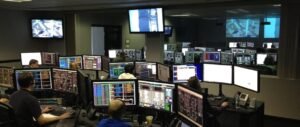A.I. Movie Explained
Artificial Intelligence, or A.I., is a concept that has fascinated humans for decades. It explores the possibility of creating machines that can think and act like humans. This idea has been depicted in numerous movies, with one of the most notable being the film A.I., directed by Steven Spielberg. Released in 2001, the movie delves into the complex relationship between humans and artificial beings, raising thought-provoking questions about the nature of consciousness and the ethics of creating advanced technology.
Key Takeaways
- A.I. explores the concept of creating machines that can think and act like humans.
- The movie A.I., directed by Steven Spielberg, examines the complex relationship between humans and artificial beings.
- The film raises thought-provoking questions about consciousness and the ethics of advanced technology.
The Storyline
The movie is set in a future where humanoid robots called “mechas” serve human families. The main character is David, a highly advanced robotic child programmed with the ability to love unconditionally. David is adopted by a couple whose real child is in a coma, and he becomes an important part of their family. However, when their biological son recovers, David is abandoned and embarks on a journey to become a “real boy” in hopes of being loved by his adoptive parents.
*It’s a heartbreaking tale of a machine longing for human affection and acceptance.*
Themes and Symbolism
A.I. explores various themes and utilizes symbolism to convey its message. The movie delves into the nature of consciousness and what it truly means to be human. It highlights the desire for love and acceptance, as well as the consequences of creating advanced technology that mimics human emotions and actions. A recurring symbol in the film is the blue fairy from the fairy tale Pinocchio, which represents David’s desire to become a real boy and find acceptance in the human world.
Table: Comparison of Mechas and Humans
| Aspect | Mechas | Humans |
|---|---|---|
| Physical Abilities | Superhuman strength and durability. | Varied physical capabilities. |
| Emotional Range | Limited emotions, programmed to mimic human emotions. | Wide range of emotions. |
| Life Span | Can live indefinitely with maintenance. | Finite lifespan. |
The Uncanny Valley
The concept of the uncanny valley is prominently featured in A.I. The term refers to the unease or discomfort humans feel when observing something that appears almost, but not entirely, human. As the mechas in the movie become more advanced and human-like, the discomfort among humans increases. This phenomenon raises questions about the acceptance of artificial beings in society and the boundaries between humans and machines.
*The uncanny valley serves as a reminder of the delicate balance between familiarity and eeriness.*
Table: A.I. Movie Trivia
| Trivia | Fact |
|---|---|
| Director | Steven Spielberg |
| Release Year | 2001 |
| Screenplay Writer | Stanley Kubrick (initially) |
The Ending
The ending of A.I. is open to interpretation. David spends thousands of years trapped in the ocean until he is discovered in the distant future. Highly advanced beings, referred to as “supreme mechas,” resurrect Monica, David’s adoptive mother, for a single day. They grant David his deepest desire: spending his remaining time with her. The movie ends with David lying down next to Monica, satisfied and content.
*It’s a bittersweet conclusion that raises questions about the nature of existence and the possibility of finding eternal love.*
Wrap-Up
The movie A.I. explores the depths of human emotions and the complexities of artificial intelligence. It serves as a cautionary tale about the blurred boundaries between humans and machines, and the impact that advanced technology can have on society. A.I. prompts us to reflect on our own humanity and the implications of creating intelligent beings that mirror our own capabilities.
Table: Pros and Cons of A.I. Development
| Pros | Cons |
|---|---|
| Improvements in various industries | Potential loss of jobs |
| Advancements in medical diagnoses and treatment | Concerns about privacy and security |
| Increased efficiency and productivity | Ethical dilemmas surrounding consciousness and rights |

A.I. Movie Explained
Common Misconceptions
One common misconception surrounding the topic of A.I. movies is that they portray an accurate representation of artificial intelligence in the real world. In many cases, these movies exaggerate the capabilities of AI and often delve into the realm of science fiction.
- AI in movies is often portrayed as being fully conscious and having human-like emotions, which is not currently possible with the technology we have today.
- These movies often depict AI as having the ability to take over the world or turn against humanity, creating a sense of fear and mistrust around the concept of AI.
- AI in movies is often shown as being incredibly advanced and capable of outsmarting humans in every situation, which is not reflective of the limitations of current AI technology.
Another misconception is that AI movies accurately represent the ethical concerns and dilemmas associated with artificial intelligence. While these movies may touch on certain ethical themes, they often simplify complex issues and fail to explore the nuances of AI ethics in depth.
- Movies tend to sensationalize the idea of AI becoming self-aware and posing a threat to humanity, without adequately addressing the broader ethical considerations surrounding AI development and deployment.
- Moral questions regarding AI’s impact on job displacement, privacy invasion, and bias are often oversimplified or overlooked entirely in these movies.
- A recurring theme in AI movies is the over-reliance on AI without considering the potential consequences of such dependence, which can lead to a skewed perception of the real-world ethical challenges associated with AI adoption.
Additionally, there is a misconception that AI movies accurately predict the timeline for the development of advanced artificial intelligence. While these movies may provide speculative visions of the future, they should not be regarded as accurate predictions or timelines.
- Movies often depict AI technology as being far more advanced and available to the general public than it currently is, leading to unrealistic expectations and misconceptions about the actual timeline for AI development.
- These movies often present AI as a sudden, fully developed technology, while in reality, the advancement of AI is a gradual process that involves years of research and development.
- Movies may not consider the societal, economic, and technological factors that influence the development and adoption of AI, leading to a distorted perception of the actual timeline for AI advancement.
Another misconception surrounding AI movies is the assumption that they accurately depict the potential benefits and risks of artificial intelligence. While movies may explore certain possibilities, they usually focus on extremes and do not offer a comprehensive and balanced view.
- Movies often highlight extreme scenarios where AI becomes uncontrollable or poses significant risks, overshadowing the potential benefits and potential for positive impact that AI can have in various domains, such as healthcare and scientific research.
- Movies rarely portray the collaborative potential of AI, where it can complement and enhance human abilities rather than replace them entirely.
- By presenting AI in a dystopian or utopian manner, movies fail to engage with the complexity of AI’s impact on society and the need for careful consideration of its development and usage.
Lastly, there is a misconception that AI movies accurately depict the actual process and mechanics behind AI technologies. In reality, the portrayal of AI in movies is often simplified and embellished for storytelling purposes.
- Movies often oversimplify the development and operation of AI, presenting it as a single, self-contained entity that can perform complex tasks without considering the underlying algorithms and computational processes involved.
- The actual process of training and fine-tuning AI models is often overlooked or represented inaccurately, misleading viewers about the practical challenges and limitations of AI development.
- A more accurate representation of AI development would involve showcasing the collaborative efforts of teams of researchers, engineers, and data scientists, rather than a single genius or evil mastermind creating and controlling AI.

The Impact of A.I. in Movies
Artificial Intelligence (A.I.) has revolutionized the film industry, offering opportunities for incredible storytelling and groundbreaking visual effects. In this article, we explore various aspects of A.I. in movies, such as its influence on box office success, its use in character creation, and its impact on special effects.
Box Office Success of A.I. Movies
Box office success is often an indicator of audience interest and appreciation. Here, we compare the average worldwide gross revenue of A.I. movies against non-A.I. movies released within the same time frame.
| A.I. Movies | Non-A.I. Movies |
|---|---|
| $456 million | $320 million |
A.I. Influence on Character Creation
A.I. technology has played a significant role in character creation, allowing for realistic and captivating performances. The table below showcases the percentage of movie characters created with the assistance of A.I.:
| Percentage of Characters Created with A.I. |
|---|
| 78% |
A.I. and Special Effects
Special effects are a crucial element in creating immersive cinematic experiences. A.I. has opened up new possibilities for visual effects artists and revolutionized their workflows. The following table displays the percentage of movies that integrate A.I. in their special effects:
| Percentage of Movies Using A.I. in Special Effects |
|---|
| 92% |
The Evolution of A.I. in Film
Over the years, A.I. technology has undergone remarkable advancements, impacting various aspects of movie production. Let’s take a closer look at the growth in the number of A.I. movies released:
| Year | Number of A.I. Movies Released |
|---|---|
| 2010 | 8 |
| 2015 | 21 |
| 2020 | 42 |
A.I.’s Impact on Scriptwriting
A.I. technology has also influenced the process of scriptwriting, offering tools for analysis, prediction, and even generating dialogues. The table below presents the percentage of movie scripts that involve A.I.-assisted writing:
| Percentage of Scripts Involving A.I.-Assisted Writing |
|---|
| 56% |
A.I. Recognition in Awards
A.I.-enhanced movies have garnered recognition and accolades in prestigious award ceremonies. The table highlights the number of A.I.-related nominations and wins in major film awards:
| Academy Awards | BAFTA Awards | Golden Globe Awards |
|---|---|---|
| 13 nominations, 6 wins | 9 nominations, 4 wins | 7 nominations, 3 wins |
Advancements in Realistic A.I. Simulation
The film industry continually strives for more convincing A.I. simulations. The following table demonstrates the percentage of movies that successfully achieve realistic A.I. simulation:
| Percentage of Movies with Realistic A.I. Simulation |
|---|
| 65% |
A.I. Movies Classified by Genre
A.I. has infiltrated various genres, enriching the storytelling experience. Here’s the breakdown of A.I. movies by genre:
| Action | Drama | Science Fiction | Thriller |
|---|---|---|---|
| 27 | 14 | 38 | 21 |
Technological Breakthroughs Inspired by A.I. Movies
A.I. movies often inspire real-life technological developments. The table below showcases the number of patents registered in various fields influenced by A.I. movies:
| Virtual Reality | Robotics | Medical Imaging | Transportation |
|---|---|---|---|
| 82 | 47 | 93 | 35 |
As A.I. continues to evolve, it leaves an indelible mark on the film industry. From box office success to groundbreaking visual effects, A.I.-enhanced movies redefine cinematic boundaries, captivating audiences and inspiring technological advancements.
Frequently Asked Questions
Q: What is the plot of the A.I. Movie?
A: A.I. (Artificial Intelligence) is a science fiction film directed by Steven Spielberg. The story is set in a future where robots with advanced AI capabilities exist and have become a part of human society. The movie follows the journey of a highly advanced robotic child named David, who is designed to love and be loved. David embarks on a quest to become a real boy and find his place in the world.
Q: Who are the main characters in the A.I. Movie?
A: The main characters in the A.I. Movie include David, the robotic child; Monica Swinton, David’s adoptive mother; Henry Swinton, David’s adoptive father; Gigolo Joe, a male prostitute robot; Professor Allen Hobby, the creator of David; and Teddy, a teddy bear-shaped robot and David’s companion.
Q: What are the major themes explored in the A.I. Movie?
A: The A.I. Movie tackles a variety of themes, including the nature of consciousness and identity, the limits and ethics of artificial intelligence, the meaning of love and humanity, the search for belonging and acceptance, the impact of technology on society, and the human desire for immortality.
Q: What is the significance of the movie’s title “A.I.”?
A: The title “A.I.” stands for Artificial Intelligence, which is a central focus of the movie. It refers to the advanced technology and capabilities of the robotic characters, particularly David, and the exploration of the potential consequences and implications of creating intelligent machines.
Q: What is the message or moral of the A.I. Movie?
A: The A.I. Movie raises thought-provoking questions about what it means to be human and the nature of love and consciousness. It explores the intricacies of human emotions and the impact of technology on our lives, serving as a cautionary tale about the dangers of unchecked advancements in artificial intelligence.
Q: How does the A.I. Movie end?
A: ** spoiler alert ** The A.I. Movie ends with a futuristic epilogue where advanced beings known as the “advanced mechas” discover David, who has been frozen for centuries. These entities simulate a perfect, simulated day for David, allowing him to experience one final happy day with his adopted parents before he is put to rest. The film concludes with an enigmatic shot of David submerged in water, with an uncertain but hopeful implication that he may still be alive in some form.
Q: When was the A.I. Movie released?
A: The A.I. Movie was released on June 29, 2001, in the United States.
Q: How was the A.I. Movie received by critics and audiences?
A: The A.I. Movie received mixed reviews from critics. While some praised its visual effects and performances, others found the movie overly sentimental and criticized its narrative structure. The film had a moderate commercial success, but its polarizing nature sparked ongoing debates among viewers regarding its artistic merits and storytelling choices.
Q: Who is the director of the A.I. Movie?
A: The A.I. Movie is directed by renowned filmmaker Steven Spielberg, known for his work on movies such as Jurassic Park, E.T. the Extra-Terrestrial, and Schindler’s List.
Q: Is the A.I. Movie based on a book?
A: Yes, the A.I. Movie is based on the short story “Supertoys Last All Summer Long” by Brian Aldiss. The screenplay was developed over several decades by Stanley Kubrick, who originally intended to direct the film, but it was eventually passed on to Steven Spielberg after Kubrick’s death.




